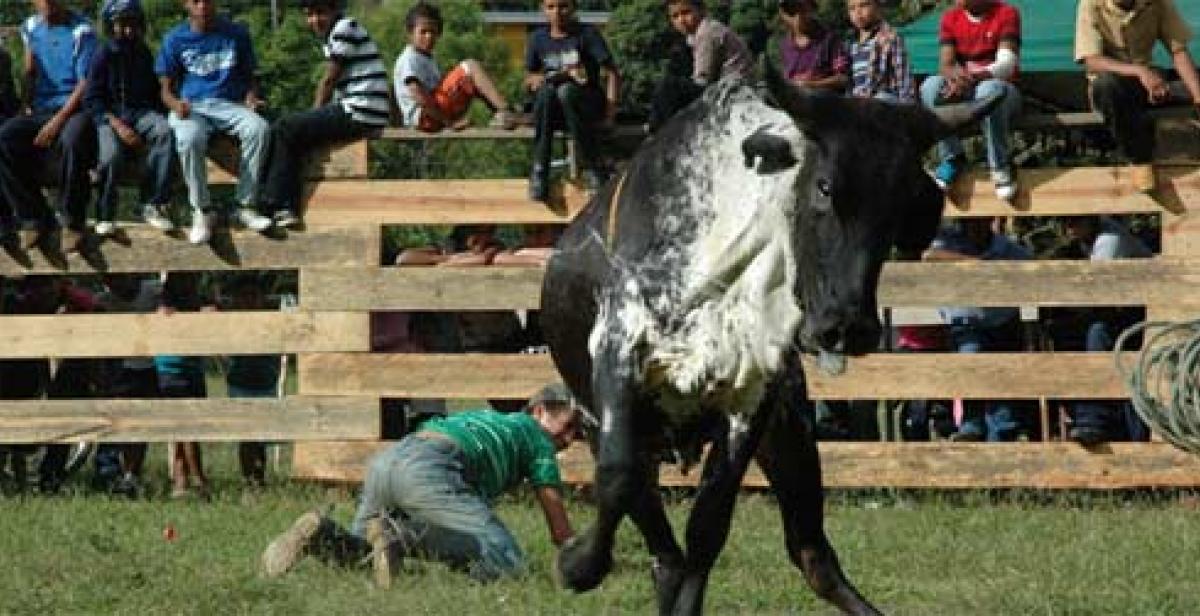The fourth week of our stay in Nicaragua is coming to an end and the halfway of the project is clearly visible. During this time we worked along the national volunteers and professionals, attended fiestas and indigenous celebrations, and met many people along the way.
One of the cultural differences that seem to unsettle most English volunteers is that Nicaraguans have a very different relationship with the concept of danger. Take for example rodeo – a national sport where a man or sometimes a woman tries to stay on a raging bull for as long as possible. The outcome is almost invariably the same – a rider falls down within half a minute and then scurries away to the safety; as one could guess, serious injuries and even deaths are not unheard of.
While in England huge efforts are spent in order to ensure health and safety of both people and animals, for Nicaraguans such assurance of security does not have the same importance. After all, the danger of being trampled by the bull is no bigger than many every-day dangers – being bitten by a poisonous snake, coming down with dengue, falling off the driving car (a popular means of transport is driving on the top of the truck load), or simply injuring oneself while working with a machete. At the same time rodeo does not provide any rational benefit except for entertaining the spectators; such bravado is only for the sake of showing one’s strength, courage, and masculinity.
This cultural difference could be seen in two ways. On one hand, Nicaraguans might be considered as way too reckless for putting themselves in dangerous situations. On the other hand, various risks surround people daily – not only in Latin America but everywhere in a world. Hoping that one could avoid misfortunes by claiming control over all of the events and surroundings is an idea prevalent in the industrialized Western countries, however it is far from the truth. The notion behind sending volunteers to another country is that they have something to offer but it is often forgotten that we can be taught a great deal as well. Admitting the limits of one’s influence over unpredictable events could be one of such lessons.
Picture by Sian Moir
Text by Agne Skrebyte



